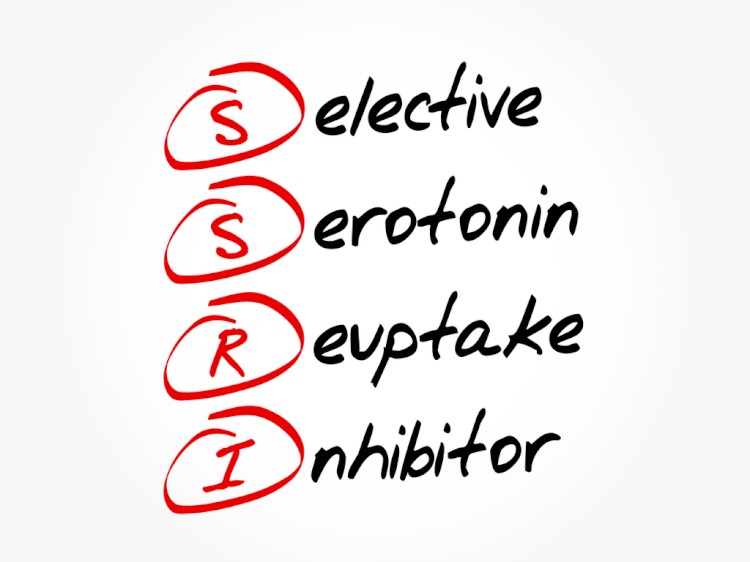Mr. Mike asked
Hello. My doctor gave me 20mg of Lexapro to help with my anxiety. I haven't taken it yet cause I've been feeling better. I'm afraid of side effects though. How bad are the side effects of 20mg Lexapro?
At a glance
- Lexapro (escitalopram) has numerous potential side effects, including gastrointestal problems, insomnia, sexual dysfunction and dizziness. Most side effects decrease in severity over time.
Answer

Common side effects of Lexapro (escitalopram) include:
- Changes in appetite
- Change in sex drive or performance
- Headache
- Increased sweating
- Indigestion
- Nausea
- Dizziness
- Dry mouth
- Tiredness
- Lethargy
- Tremors
The above side effects are relatively common and usually, do not require medical attention. You should, however, be sure to report to your doctor or health care professional if they continue or are bothersome.
Side effects that you should report to your doctor or health care professional as soon as possible include:
- Allergic reactions (e.g. skin rash, itching or hives, swelling of the face, lips, or tongue
- Anxiousness
- Black, tarry stools
- Changes in vision
- Confusion
- Elevated mood
- Decreased need for sleep
- Racing thoughts
- Impulsive behavior
- Eye pain
- Fast, irregular heartbeat
- Feeling faint or lightheaded,
- Feeling agitated, angry, or irritable
- Hallucination
- Loss of contact with reality
- Loss of balance or coordination
- Loss of memory
- Painful or prolonged erections
- Restlessness, pacing, inability to keep still
- Seizures
- Stiff muscles
- Suicidal thoughts or other mood changes
- Trouble sleeping
- Unusual bleeding or bruising
- Unusually weak or tired
- Vomiting
Lexapro is classified as an SSRI (selective serotonin reuptake inhibitor). The side effects listed above are associated with all SSRI medications but can vary in incidence rate depending on the specific drug.
The guidelines for the treatment of major depressive disorder (Practice Guidelines For The Treatment of Patients With Major Depressive Disorder) states the following regarding side effects for SSRI drugs:
"SSRIs have comparable tolerability overall, but the specific medications differ somewhat in their side effect profiles, which may guide selection of an agent for an individual patient. Pharmacokinetic issues, including halflife and effect on the CYP-450 enzyme system, are additional considerations in the choice of an SSRI."
Side Effect Categories

The major depressive disorder guidelines list the possible side effects of SSRIs (such as Lexapro) into 7 major categories:
- Gastrointestinal
- Activation/insomnia
- Sexual
- Neurological Effects
- Falls
- Effects On Weight
- Serotonin Syndrome
Gastrointestinal
Adverse gastrointestinal (GI) effects are among the most frequently reported adverse reactions during treatment with SSRIs, including Lexapro (escitalopram). Most of these side effects are 'dose-related', meaning that higher doses increase the incidence of side effects.
Gastrointestinal adverse events are generally mild and tend to occur when therapy is first initiated or doses are increased. Their severity tends to decrease over the first few weeks of treatment.
Activation/Insomnia
Lexapro can precipitate or exacerbate a feeling of restlessness, anxiety, insomnia, and irritability. It also has the potential to cause impulse control symptoms. These side effects tend to decrease over time. Additionally, starting Lexapro at a low dose and slowly increasing can help to decrease the incidence of these side effects.
These side effects are also associated with discontinuation of Lexapro.
Sexual
Both males and females have been reported to experience sexual side effects, which includes libido decrease, impotence (male) and orgasm dysfunction.
It can be difficult to discern the true incidence of sexual side effects as sexual dysfunction is often part of depression and other psychiatric disorders.
Strategies for mitigating sexual side effects of Lexapro include:
- Maintain therapy (they tend to disappear with time)
- Lowering the dose
- Discontinuing or substituting for another antidepressant (e.g. Wellbutrin)
Neurological Effects
Lexapro can potentially exacerbate headaches, especially when therapy is first started. However, SSRIs can help reduce the incidence of headaches with long-term use.
Other potential neurological effects include:
- Akathisia (feeling of inner restlessness)
- Dystonia (involuntary muscle contractions)
- Parkinsonism
Falls
Lexapro may increase the risk of falls, which must be considered, especially in elderly individuals.
Reasons for increased falls are due to the potential for Lexapro to cause dizziness and weakness, as well as the fact that it can cause hyponatremia (low sodium levels) in a small number of individuals.
Weight Changes
SSRI medications are associated with changes in weight. Effects on weight vary by SSRI. Paxil (paroxetine) is typically associated with the most weight gain.
Lexapro specifically has been associated with both weight loss and weight gain. Decreased weight has been observed in children and adolescents receiving Lexapro and it is recommended to periodically monitor both height and weight.
Serotonin Syndrome
Serotonin syndrome has been reported during the use of SSRIs alone (like Lexapro), or when used concurrently with other medications that affect serotonin.
Serotonin syndrome is rare, but if symptoms occur, Lexapro and any other serotonergic agent should be discontinued and immediate medical attention should be sought.
Symptoms of serotonin syndrome include:
- Nausea
- Vomiting
- Diaphoresis (sweating)
- Facial flush
- Mental status changes
- Myoclonia (eyelid spasm)
- Restlessness
- Shivering
- Elevated blood pressure
References
- ClinicalKey: Lexapro Monograph. ClinicalKey
- PRACTICE GUIDELINE FOR THE Treatment of Patients With Major Depressive Disorder. Psychiatry Online




